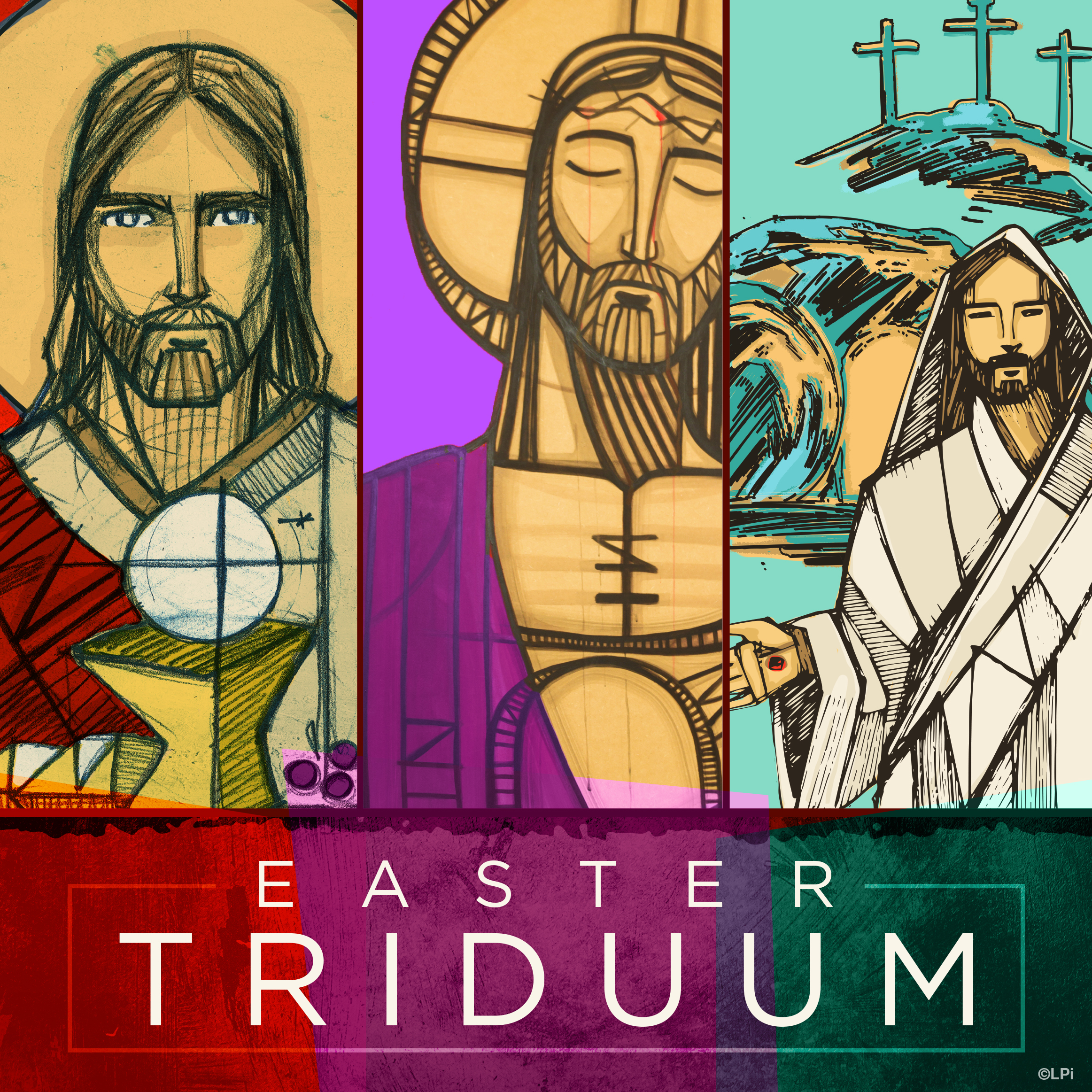Bread broken for the new world
MAUNDY THURSDAY OF THE SUPPER OF THE LORD
[ John 13: 1-15 ]
Easter Triduum begins with Maundy Thursday.
With Palm Sunday, we began our Holy Week. And with Maundy Thursday, we begin our Easter Triduum as we enter more deeply into the Paschal Mystery – the Passion, Death and Resurrection of our Lord Jesus Christ. Easter Triduum (i.e., Maundy Thursday, Good Friday and Easter) is not three but one singular and continuous salvific event.
Lessons from Maundy Thursday.
On Maundy Thursday,
1) Jesus ate the Passover meal with His disciples.
Meals are important across all cultures. During meals, conversations take place and relationships are built. Therefore, it is not surprising that we always hear Jesus eating, drinking and having a meal with someone or even with sinner(s). He feeds us not just physically but also spiritually.
This Passover meal, however, is very special and different from all the other meals. This is Jesus’ Last Supper with the disciples before He dies – He has very important things to say – it is His final discourse to His disciples. He instituted two great Sacraments: the Sacrament of the Holy Eucharist and the Sacrament of Holy Orders. He gives us His Body and His Blood to feed us and nourish us, and He commands His disciples (of all the ages) to ‘do this in memory of Him’ [cf. Lk 22: 19, 1 Co 11: 24].
In the past, God fed the starving Israelites with manna in the desert. In our time, Jesus feeds our hungry souls with His Body and His Blood. At every Mass, as the priest in persona Christi repeats the same words of Jesus, the unique and once-and-for-all redemptive sacrifice of Jesus is made present in the Eucharistic Sacrifice of the Church [cf. CCC 1545].
2) At supper, He washed His disciples’ feet.
Our feet are dirty, constantly exposed to dirt and germs. Yet, Jesus got up from the table, went down on His knees, bent over to wash the disciples’ feet – ‘He has always loved those who were His in the world, but now He showed how perfect His love was...’ [Jn 13:1] Out of love for you and for me, Jesus is willing to do the dirtiest and most despised work, and even to die a humiliating death. And He has commanded us to do likewise to each other. “For the Gentiles, the kings lord it over them; for us Christians, however, the greatest must serve the smallest” [cf. Lk 22: 24-26] – another Paradox of Jesus!
RECEIVING the Eucharist and LIVING the Eucharist.
Yes, ‘the Eucharist is the source and summit of a Christian’s life’ [CCC 1324] – it must be our souls’ desire to receive the Body and Blood of Jesus as frequent as possible, in a state of grace, to be in profound communion with Him.
However, receiving the Eucharist alone is not an end in itself, we must also be ready to live the Eucharist – receiving the Eucharist and living the Eucharist are inseparably connected. The Eucharist we receive must transform us to be more and more Christ-like to love, to care and to serve others – to go places no one goes, to do things no one does, to hold and kiss the dirty feet no one will but Jesus…
Let our fervent prayer be:
“Lord Jesus Christ, may I be Your Body broken for the new world.”
Let us also pray that God’s justice, peace, truth and love may prevail in Ukraine, Sri Lanka and Nicaragua.
[Note: This Gospel reflection was first published on Porta Fidei dated 1 Apr 2021.]




Comments
Post a Comment